ENEMIES OF ROME 8.2 - ALARIC - Like a Wrecking Ball
In spite of their settlement inside the Roman Empire, the Goths were neither welcome nor comfortable enough to settle down peacefully. No one looked like to have a better plan to deal with them than using them as cannon fodder and playing them as a trump card against the others, something Alaric - one wonders why? - took offense with.
Stalemate
Alaric witnessed all of this from the front ranks of the Gothic society. He belonged to the Balti family, a royal dynasty among which were chosen kings and chieftains. As such, he was not yet supreme leader of the Goths and had to compete with other candidates. The Goths elected their leaders in function of their strength, and that strength was measured by their success on the battlefield. Therefore, Alaric was never expected to take the plough and to harvest the fields, but to lead his people into war.
And, thankfully for him, if there was one thing the Roman Empire never tired itself of, it was... War.
A Divided Empire
The Western Empire was dealing with its own Barbarian issue. Vandals, Alemanni, Franks had all broken into Gaul around the same time as the Goths in the East. The Western Emperors dealt with them in the same way as the Eastern one: setting one tribe against another, fighting them when they could and offering money and land when they could not.
However, slowly but surely, the Western Empire became dependant on those Barbarians to fill the gaps in the Legions. In 392, the Emperor Valentinian II died in suspicious circumstances and everything indicates that it was his Frankish magister militum Arbogast who plotted it. Of course, a Barbarian would not yet be able to seize the ultimate power for himself, so he installed a puppet Emperor on the throne, called Eugenius.
The news was freshly received in Constantinople: Theodosius, the one who had managed to settle a treaty with the Goths, could not let the Western Empire in the hands of a Barbarian who, to add insult to injury, professed to return Rome to its pagan traditions. So, in 393, Theodosius proclaimed his own son Honorius as the legitimate Western augustus - de factor declaring war.
Battle of the Frigidus river
To lead his armies, Theodosius counted on a formidable ally whose trajectory would forever be linked with Alaric's: Stilicho. Stilicho deserves a whole article just for himself, had he been an enemy of Rome rather than a friend. Let's just say that Stilicho was the antithesis of Alaric: in spite of having Vandal blood, he identified himself completely with the Roman ethos and people. He had risen through the ranks of Theodosius' regime and through his diplomatic and military successes had even gained the hand of his master's daughter.
He would become the chief adversary of Alaric in the years to come, but on May 394, Theodosius, Stilicho and Alaric set out from Constantinople together and crossed the Balkans and Illyricum to face the forces of the Western Empire at the Battle of Frigidus.
In the battle between Romans+Franks and Romans+Goths, the latter were the winners and Alaric learned a tough lesson in the process. Theodosius and Stilicho had neither trust nor respect for the Goths and had decided to use them as cannon fodder, launching them on a full frontal assault to weaken the enemy. The Goths suffered the brunt of the losses of that battle, and some say as many as 10.000 Goths were laying dead on the battlefield afterwards.
Alaric Unchained
If the Goths expected to be handsomely rewarded for their sacrifices, they were sorely disappointed: Theodosius was never going to acknowledge their share of glory and instead he proclaimed that the victory was due entirely to a divine intervention. Stilicho and Theodosius probably congratulated themselves on having killed two birds with one stone: removing the usurpers from the Western throne and weakening the Gothic forces in the process.
Alaric saw all of that, and clenched his teeth, but he would not keep them clenched for long. Less than a year after the battle, Theodosius died (395). Alaric, who had managed to make himself the supreme leader of the Goths in the meantime, saw an opportunity: with Theodosius dead, and his successor Arcadius being only a 18-year-old boy under the thumb of other players, he broke the treaty with Constantinople, as explained by Zosimus:
Alaric became seditious and disobedient to the laws, for he was displeased that he was not entrusted with the command of some other military forces besides the Barbarians, which Theodosius had allotted to him when he assisted in the deposition of the usurper Eugenius.
Of course, the Goths were powerless to break through the formidable walls of Constantinople. So they turned against the countryside - unopposed. Stilicho saw an opportunity. Being the caretaker of Theodosius' son Honorius (the Western Emperor), he claimed that he had been appointed as well as the caretaker of Arcadius and flew to his rescue.
During two years Stilicho and Alaric played a game of cat and mouse in Thrace, and Lower Moesia, complicated by the rivalries of the courts. It is said that Stilicho had Alaric cornered on at least one occasion, but was ordered by Arcadius, the Eastern Emperor, to get out of his territoy before he could finish the job. Stilicho obeyed. First, because he had rebellions to attend to in the West, and second because he probably expected Alaric to keep the Eastern Empire occupied for the years to come.
However, Alaric had learned two things from these battles: first, that Constantinople was definitely out of his reach.
Second, that a homeland stuck between two rival powers is no homeland at all.
If there was a future for the Gothic people it was to break free of that Balkanic cul-de-sac.

PREVIOUS EPISODE
ENEMIES OF ROME 8.1 - ALARIC - Let's Goth to Rome
SOURCES
http://www.gutenberg.org/files/28587/28587-h/28587-h.htm
https://archive.org/stream/gothichistoryofj00jorduoft/gothichistoryofj00jorduoft_djvu.txt
http://epublications.marquette.edu/cgi/viewcontent.cgi?article=1007&context=dittman
http://www.ccel.org/g/gibbon/decline/volume1/chap26.htm
PREVIOUS “ENEMIES OF ROME” EPISODES
Boudicca - The Warrior Queen
Zenobia - The new Cleopatra
Sertorius - The Last Man Standing
Vercingetorix - One man to rule them all
Arminius - Magna Germania
Genseric - The Vandals are Coming
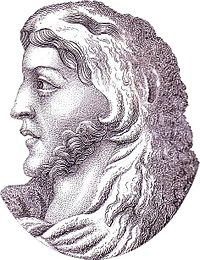
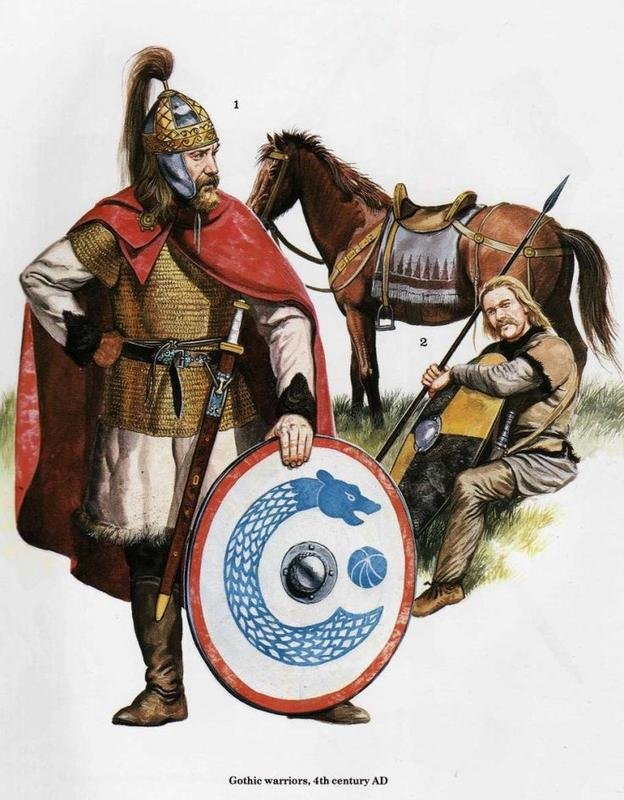
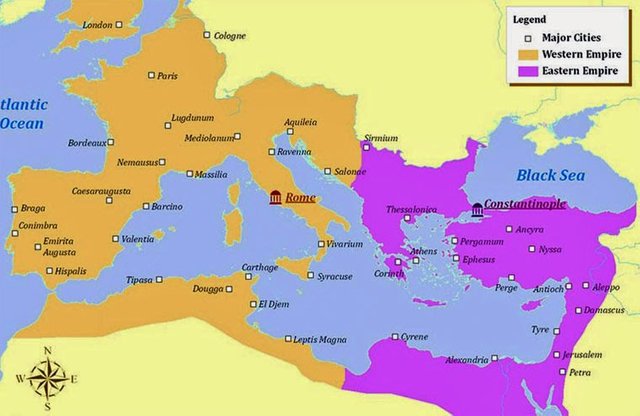
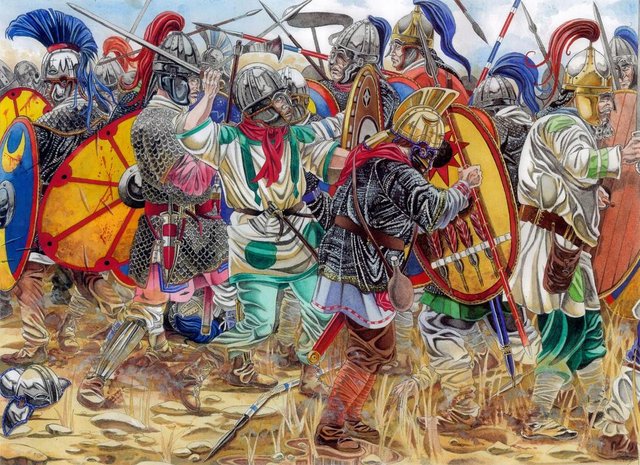
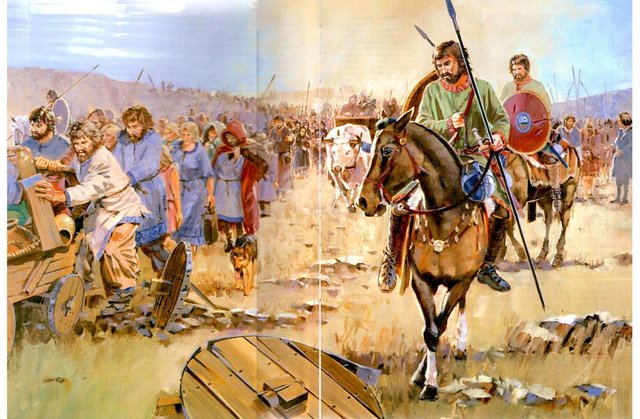
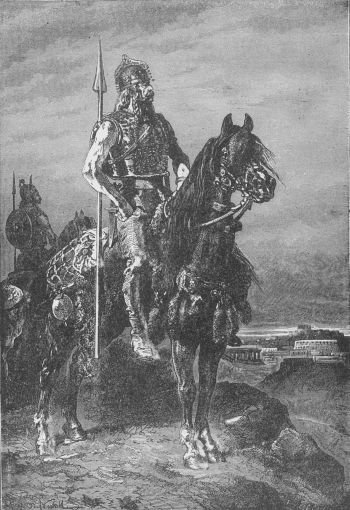
True, Roman civilization was expanded its influence over a wide zone , but it's end was very tragic every beginning have the end
Yep, all empires eventually overextend and collapse under their own weight
I don't know if you heard about this but you should check it out I think you might like it.
https://steemit.com/history/@symphonyofechoes/history-writing-contest-5-sbd-in-total-prizes
Wow! Thanks! haha I didn't know that existed... Maybe my articles are too long though, we'll see!
Excellent series, O just stumbled upon them. Really good stuff. I see Rome is almost gone, too bad. I wanted to sugest Teuta, queen of the Illirians
Thanks! OMG i had never heard about this queen at all :-/ I'll do some research and yes, maybe, could be a great episode!
https://en.wikipedia.org/wiki/Teuta . these are basics. I was actually thinking writing about her in some future, because warrior queen topics are kind of cool, admit it. But I would really like to see her included in this great series of yours.
I will do my best! :) Thanks!
Thank you. Keep up with good posts. Glad I found this blog
wonderful information :) very like. Thank you
Thanks @mnallica!
I like history and I enjoyed reading your post about roman civilizations, I can't wait your next post.
It's coming tomorrow! :) I usually write all of them together and then I publish at intervals. Thanks for your support!
The irony is that Rome honed and shaped Alaric into one of the greatest military commanders of his generation, and he used the knowledge they gave him to destroy their lands.
A very good post. :)
you are really good at narrating the historical issues. and very nice choices.
congratulations my dear friend :)
Tesekkur ederim!!!
a good history of knowledge